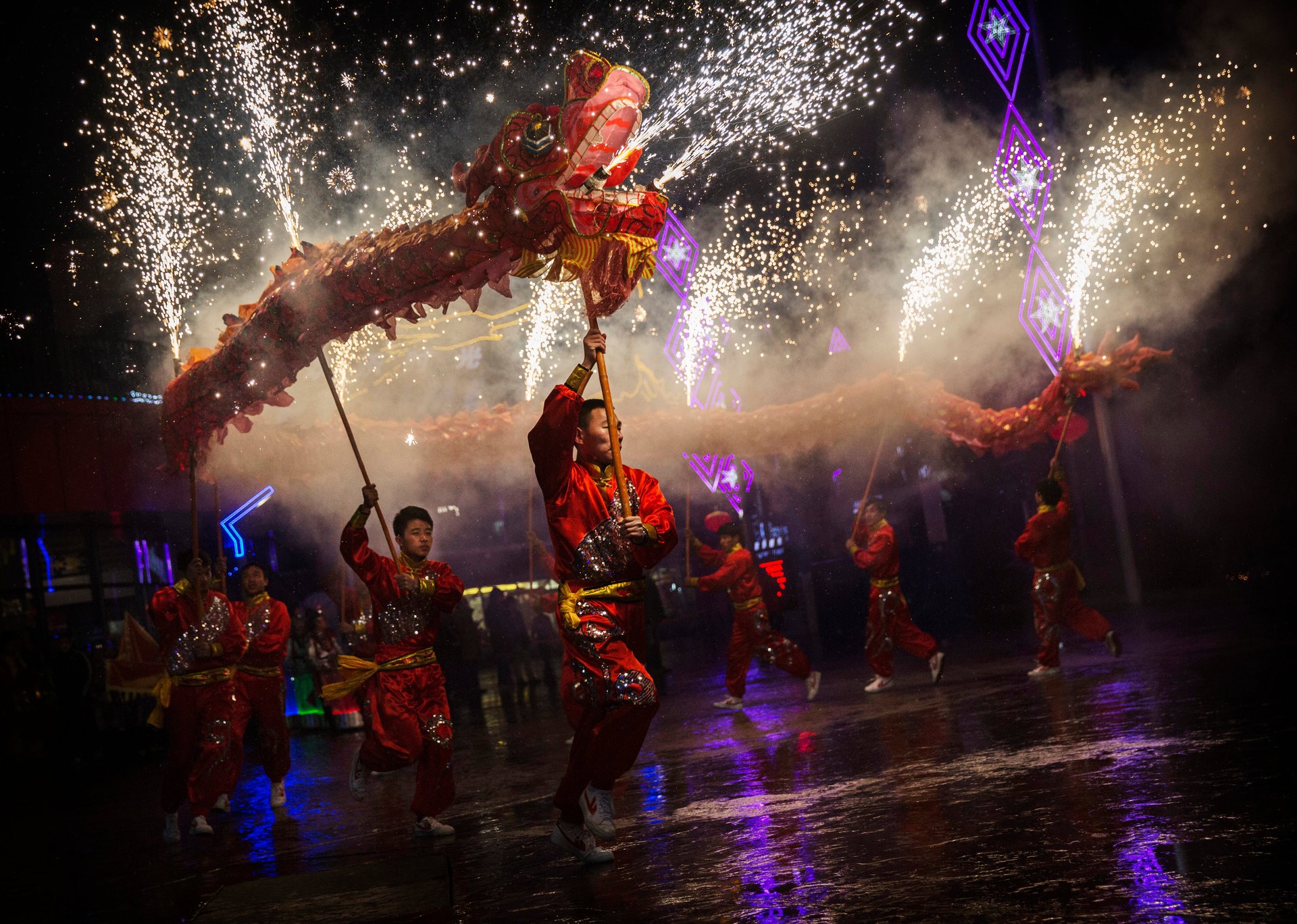Chinese New Year in the US has taken a dip in popularity
US-China politics and covid-19 may have dampened spending on the holiday's traditional goods

For Chinese and many other Asian communities, the Lunar New Year, which falls on January 22, is the most important holiday on the calendar. But in the US, the popularity of the holiday dropped in the last year, according to research from the data firm, Pattern.
Although Chinese New Year still produces a sizable spike in sales for certain kinds of celebratory products compared to the rest of any given year—things like dumplings, sweets, tea, and decorations—demand for Chinese New Year products on a year over year basis declined last year compared to 2021.
Chinese decorations took the biggest hit falling 73%, followed by Chinese tea and live indoor bamboo both down 23%. Money plants fell 12%, dumplings were down 7%, and candy and chocolate were down 2%.
This reverses the growth seen from 2020's Chinese New Year season to 2021. Between the two years, sales increased for dumplings (310%), Chinese decorations (258%), Chinese tea (54%), money plants (29%), live indoor bamboo (12%), and candy and chocolate (14%).
A number of factors are at play, said Dallin Hatch, a data expert at Pattern. US-China relations are tense—for example, Tik Tok, which is owned by China’s Bytedance, has been the subject of scrutiny. Some are campaigning for the dominant social media platform to be banned completely in the US, widening from the ban on government agency devices and on some university campuses. Meanwhile, the pandemic has led to an uptick in hate crimes against Asians in the US, including some high profile cases against the elderly. Soon after the outbreak of covid-19, Pew Research found that unfavorable views of China reached an all-time high in many countries.
Another likely contributor? The precipitous drop in the number of Chinese university students in the US. In the first six months of 2022, the number of student visas issued to Chinese nationals decreased by more than 50% compared to pre-covid-19 levels. Prior to the pandemic, Chinese students comprised the largest international student population in the US, accounting for 35% of all foreign-born students in the country. This has to do both with how Chinese community feels less safe in the US, and how Chinese authorities started limiting travel for their citizens under the zero-covid strategy. They began refusing to renew passports and canceled student visas to go overseas.
However, Hatch believes that much of the decline comes down to the wider American population’s interest in the holiday.
“You have people who have ties or families of origin and have celebrated this for a while whether a family that has immigrated to the US from country in Southeast Asia that celebrates,” Hatch said. “But then you have this other halo effect of people who just love the celebration, love the pageantry.”
Hatch says that the halo segment is who they believe to be contracting rather than Chinese New Year’s core audience. In other words, it’s non-Asian communities that don’t feel like taking part in the celebrations.